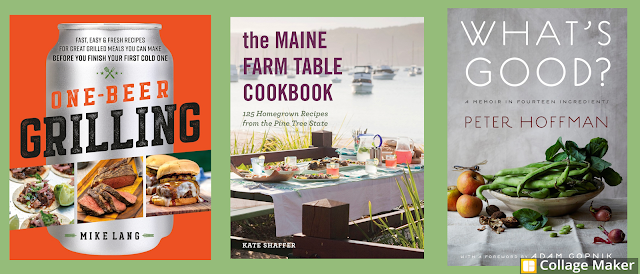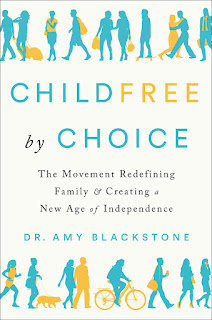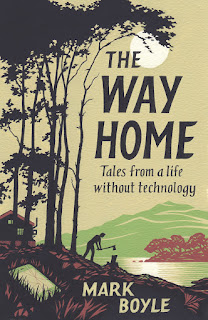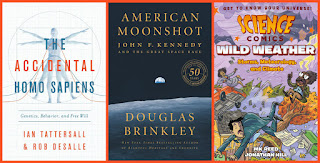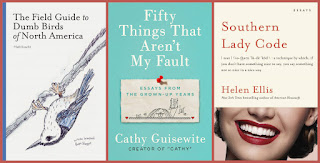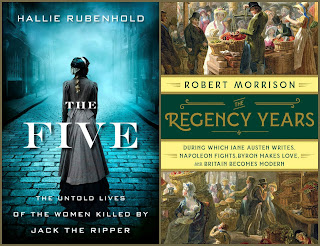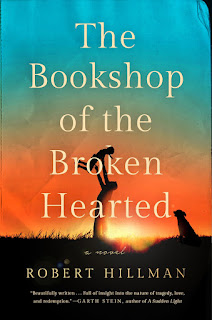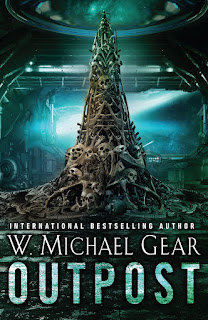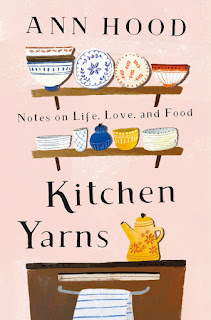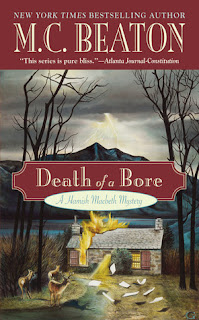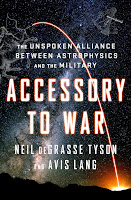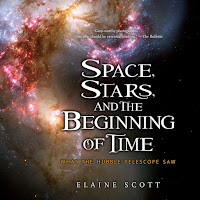3 Cookbooks for Sourdough Breads (Weekend Cooking)
I'm not telling you anything new when I say that interest in sourdough baking has skyrocketed in recent years. All three cookbooks featured today are focused on sourdough baking. Before I get to the books, I should tell you about my experience baking with sourdough. We love sourdough in the BFR household, and back when I used to bake bread almost daily, I had an active sourdough starter in my kitchen. At some point, when we stopped eating so much bread, I turned my attention to active dry yeast, which is where I've stayed for the last 20 years or so.
As sourdough has become popular again, I'm tempted to develop a starter and return to this style of baking. Perhaps this winter. In the meantime, I'm happy to read and learn from the many new sourdough cookbooks that have been published over the last couple of years.
Today, I introduce you to three that have caught my attention. Thanks to the publishers for the review copies of the following cookbooks. All three will be published in the next two weeks.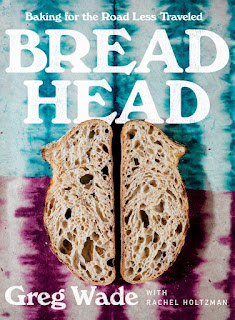 James Beard award winner Greg Wade oversees the bread program at Chicago's Publican Quality Bread. Wade is known for encouraging bakers to use organic grains and to support sustainable small farms. After taking note of the rising (heh) popularity of sourdough, he wrote his debut cookbook, Bread Head (W. W. Norton), with the goal of guiding and educating the newest generation of bread bakers.
James Beard award winner Greg Wade oversees the bread program at Chicago's Publican Quality Bread. Wade is known for encouraging bakers to use organic grains and to support sustainable small farms. After taking note of the rising (heh) popularity of sourdough, he wrote his debut cookbook, Bread Head (W. W. Norton), with the goal of guiding and educating the newest generation of bread bakers.
Bread Head covers all the basics, offering tips on equipment, making sourdough starter, and buying and storing grains. Wade explains both the science and the art of bread baking, including details on how to use baker's percentages.
Besides sourdough bread recipes, Bread Head includes recipes for a few yeasted bakes as well as treats like doughnuts, galettes, and brownies. There's also a chapter on baking over wood or on a grill.
Some of the things I like about the cookbook are the glossaries of bread terms and grain types, the process guides (mixing, shaping, and so on), and great photos.
The recipes themselves are easy to follow and the ingredients are given three ways: weight, volume, and baker's percentages. The instructions are broken down by task (like mix, ferment, shape, proof) and include tips and help. Example recipes are Oat Cinnamon-Raisin Challah, Sorghum Blondies, Malted Rye Bread, Peach and Cashew Loaf, and Buckwheat and Thyme Loaf.
Recommendation: If you want to learn more about the art of sourdough bread baking, put Greg Wade's Bread Head on your list. Yes, I know all the purists' thoughts on bread machines, but I own one and use it often. When I worked 60+ hours a week, it was a godsend, saving me time and cleanup. I use my machine for only kneading and rising; I shape the loaves by hand and bake in the oven. I'm also very hands-on during the mixing phase.
Yes, I know all the purists' thoughts on bread machines, but I own one and use it often. When I worked 60+ hours a week, it was a godsend, saving me time and cleanup. I use my machine for only kneading and rising; I shape the loaves by hand and bake in the oven. I'm also very hands-on during the mixing phase.
Bread machine queen Michelle Anderson has written a number of baking books and has perfected techniques for relying on the machine, including the baking. Anderson's newest book, Sourdough Breads from the Bread Machine (Harvard Common Press), is perfect for home bakers who love and depend on their machines.
Sourdough Breads from the Bread Machine starts with directions for making several sourdough starters, including a gluten free one. Anderson introduces different flours and grains and discusses various add-ins, such as cheeses, seeds, nuts, and fruits.
I'm especially impressed with the chapter focused adapting sourdough techniques for the bread machine. Anderson gives specific advice on types of machines and their cycles, provides a step-by-step guide to baking methods, anticipates bakers' questions, and includes a troubleshooting guide.
Sourdough Breads from the Bread Machine starts with basic recipes and then moves to loaves that use non-wheat flours and call for a variety of flavorings. There's also a chapter for hand-shaped bakes, including sweet treats. Some recipes are Black Walnut Rye, Garlic and Black Olives, Chocolate Cinnamon, Bleu Cheese and Bacon, and Herb Swirl Bread.
Recommendation: Put Sourdough Breads from the Bread Machine by Michelle Anderson on your list if you're looking to ramp up your bread machine skills.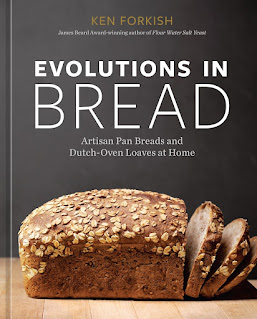 If you do any kind of baking, then it's likely you've heard of James Beard award winner Ken Forkish. His newest cookbook, Evolutions in Bread (Ten Speed Press), is all about how he's adapted some of the breads and techniques from his Portland, Oregon, bakery for the home baker. His focus in this cookbook is on artisan pan breads that call for interesting grains and easy methods.
If you do any kind of baking, then it's likely you've heard of James Beard award winner Ken Forkish. His newest cookbook, Evolutions in Bread (Ten Speed Press), is all about how he's adapted some of the breads and techniques from his Portland, Oregon, bakery for the home baker. His focus in this cookbook is on artisan pan breads that call for interesting grains and easy methods.
I love that most of the recipes in Evolutions in Bread are for only one loaf, perfect for small households and for those who like to bake often. The sourdough starter detailed in this book features Forkish's flour-saver method, which is easy to make and nurture.
The beginning chapters are all about ingredients, grains, milling, and equipment. Forkish clearly describes the needed methods and skills called for in the cookbook. His eight steps (with substeps) for baking bread are a gold mine of information for baking your best artisan loaves yet.
The chapters are divided by time and technique and include recipes for classic breads like Black Bread, Brioche, Pain du Levain, Country Bread, and Spelt Bread.
Recommendation: Pick up Evolutions in Bread by Ken Forkish to learn a unique starter and for an incredibly helpful guide to baking artisan loaves in a home kitchen.
Shared with Weekend Cooking, hosted by Marg at The Intrepid Reader (and Baker)Click for more



